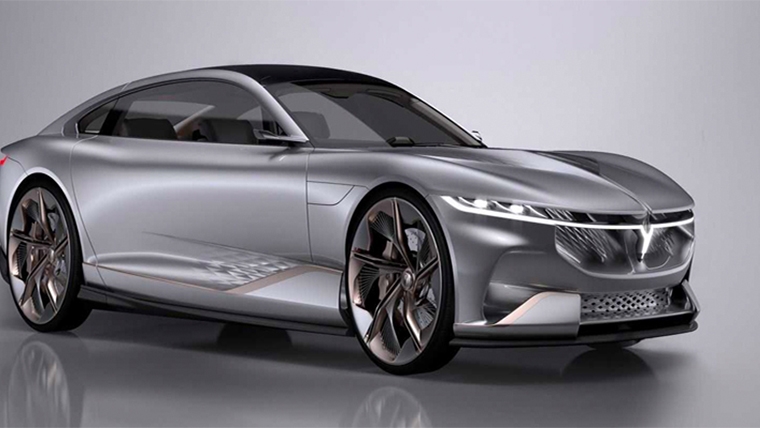
By Mark Tanner*
Over the years, China has made the headlines for its cottage industry of fakes, from infant formula to condoms to fake zoo animals. This has left many with an impression that China is a nation of copycat producers. But in reality, China has been busy beavering away for years coming up with innovative ideas that change the way people live, consume and market.
In 2019, China surpassed the US for number of patents registered with patents for inventions growing 30% last year. As a whole, China's patents aren't considered to be the same quality as some countries, but the ratio of high-quality patents has doubled over the past five years. In 2021, the country climbed into the top-dozen countries in the global innovation rankings. Like many manufacturing countries before it, China has learnt a lot about product development from its role as the 'world's factory.' This, combined with a strong focus on STEM in education, heavy investments in R&D, and a culture of risk taking and failing fast, has led to an increasing number of innovations coming from the Middle Kingdom.
On many fronts, China has been leading innovations for online consumer applications for some years, with the Facebooks, Amazons and Apples of the world replicating ideas from China.
Many of China's innovations aren't quite as sexy as the consumer-focused WeChat, livestreaming innovations or facial recognition-enabled smart shopping, but they address challenges that China and the wider world faces. China's shrinking population and increasingly expensive workforce has seen an increase of robots in retail, warehouses and even robot earthworms to explore engine pipes. In the agricultural sector, Chinese innovations are set to increase following its first technology roadmap for intelligent agricultural machinery. It is also showing early signs of focusing on more GM farming as it strives for greater self sufficiency in feeding a nation wanting more calories each year.
Some of the most interesting innovations coming out of China are areas which are not traditionally associated with the country. A good example is the auto industry. Even in its home market, Chinese car brands have largely been considered inferior and unable to charge a fraction of the premium that foreign badges command. Although domestic brands are growing faster, foreign brands still account for the largest share of the market.
Whilst China is being beaten for combustion engines, it is leading for EVs. The government was quick to identify this as a significant future opportunity, and doubled down on its support and subsidies. By 2018, there were already 487 EV makers in China. Competition breeds innovation and that is what we have seen, with EV's as cheap as $4,500 to talk of flying cars within a couple of years.
Globally, increasing environmental awareness and soaring fuel prices have seen consumer interest in EVs reach a tipping point. Although America holds the high profile Tesla brand and legacy auto giants in the US, Europe, Japan and South Korea are also investing heavily in the EV wave, backing the EV horse early has paid off for China. China produces the more than half of the world's EVs, and dominates in supporting industries such as batteries and cell components.
Although EV innovations in China may not appear relevant to a lot of consumer categories, they are symbolic of China innovating under the radar, which will leave few brands and categories untouched.
For brands, China's growing innovation presents both opportunities and threats. Innovative Chinese companies present partnership opportunities for foreign brands, both within China and outside. China's innovations are also creating opportunities for new and enhanced channels for marketing, sales and data collection. The innovations are creating new behaviours, habits and subcultures, which in themselves present possibilities. Like any dynamic market, the opportunities will be more likely for those brands who stay ahead of the game in innovations and trends.
Mark Tanner is the CEO of China Skinny, a marketing consultancy in Shanghai. This article was first published here, and is re-posted with permission.
8 Comments
I have been seeing lots of HAVAL from Great Wall recently. But not so many EV choices - Tesla, and some Japanese brands.
Hope NZ can start importing some Chinese EV brands
BYD (https://bydeurope.com/pdp-auto)
AITO M5 and soon M7 (https://www.huaweicentral.com/huawei-aito-m5-with-harmonyos-system-will…)
NIO (https://www.nio.com/et7)
you notice haval on the roads because they are the uncanny valley of cars. looks like a car, but at the same time doesn't*. whereas a tesla is dime a dozen now and fades into the mix
*probably because they have had various court cases against them for copying other manufacturers designs
This is true, the aspect of de-regulation from central control management to governance presents these opportunities.
WeChat is still not replicated in the west despite being a primary means of commerce in China. A massive opportunity not realised.
You can download WeChat but there's little point having it if you're not Chinese. You need to be invited into the network. But you have a point about the ecosytem being useful for commerce.
That Western IP holders need to take their electronic security much more seriously.
flying cars in a couple of years? Too slow Dubai is going to launch autonomous flying taxis in 2017!
... I'm going back to the future to get one of those ...
I wish China would sell environment friendly and competitive products in New Zealand. Being cheap does not guarantee, it would be environmentally sustainable. End of the day NZ would end up in an island of junk. Secondly, if the product cannot comply NZ laws and vision, NZ government can create credits and invests in African regions, where lives will be impacted through the benefit of automation. Last but not the least, China is not the world, rather China is within the world. Hence if the opinions of world go against the Chinese government's will, I recommend the Chinese government to plan a project for a robotic colony in Moon or Mars or Venus.

We welcome your comments below. If you are not already registered, please register to comment
Remember we welcome robust, respectful and insightful debate. We don't welcome abusive or defamatory comments and will de-register those repeatedly making such comments. Our current comment policy is here.